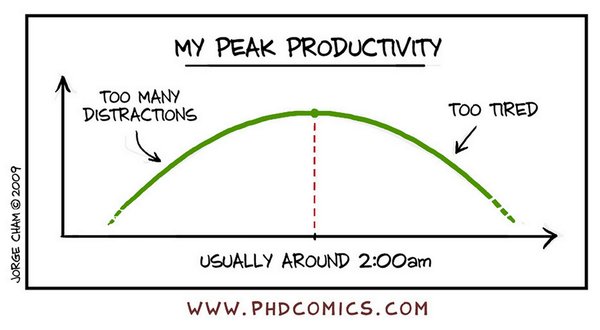Cecily Drucker, CEO and Founder of Bottom Line Time–and daughter of the late Peter Drucker–has a good post up on the “What Would Dad Say” blog entitled “Secrets of a 64 year old Startup Virgin” that lists fourteen startup secrets she has learned with her first startup. She has a few more insights in her introduction (emphasis added)
Cecily Drucker’s Startup Secrets
Start with the end in sight-—be a solution to an existing problem, not a solution in search of a problem. The existing problem we solved was how to give high-value workers the ability to track and report work-task time without any change in their work habits, and without involving any additional “steps.”
I knew from my own experience as a lawyer that I was losing at least $20,000/yr. of billable time because I wasn’t able to effectively track and report my email activities; I figured that if I had that problem, others did too, and verified this with anecdotal inquiries among my colleagues.
 She lists 14 things that she learned, I thought the best four were:
She lists 14 things that she learned, I thought the best four were:
1. Embrace the fertile void of sleepless nights. Lots of creativity can occur then.
I have said before that entrepreneurship is an ongoing self-improvement project. This involves a certain amount of dissatisfaction with the status quo–including your own approach to the business. In my experience this can lead to a certain number of sleepless nights, some of these are productive. I have found it prudent to keep a pad of paper and a pen by my bed, it’s not unusual for me to wake up at 3AM or 4:30AM or 6AM with my mind racing with ideas: I will take ten or 20 minutes to get them written down before I forget them. I haven’t found it useful to stay up worrying, but sometimes I will get inspired and do good work. I blogged about this in “Productive Larks and Creative Owls” inspired by Tim Berry’s observation: “As a morning person, I’m generally more productive. As a night person, I’m generally more creative.”
4. Once you’ve invested your money, it is a company asset.
I think this is an excellent rule, assume the funds are 100% committed to the business: this will encourage you to only put in enough to allow you to hit a risk reducing milestone (with some margin for error and experimentation). This approach will also encourage you and your team to do a more objective re-assessment once you hit (or fail to achieve) your target.
6. Start with the most elegant, simple outcome. Solve the problem you set out to solve, or intentionally change course.
Simpler is easier and faster to implement. As long as your offering delivers a minimum set of benefits it should move some set of prospects to adoption. The key is to stay focused quick relief of the prospect’s pain, not a perfect solution.
7. Acknowledge everyone’s contributions: your entire team is making a bet and probably doing so with significant personal risk.
Not only founders but early employees take a risk in joining a startup. Frequently thanking folks for meaningful contributions–and meaning it–can do more to maintain morale than any promise of reward.

Pingback: SKMurphy » Quotes for Entrepreneurs - March 2009
Pingback: SKMurphy, Inc. Drucker on Profit and Business Purpose - SKMurphy, Inc.
Pingback: SKMurphy, Inc. Entrepreneurs Exploit Errors in Conventional Wisdom
Pingback: SKMurphy, Inc. Making Tea - SKMurphy, Inc.
Pingback: SKMurphy, Inc. Quotes for Entrepreneurs-July 2016 - SKMurphy, Inc.
Pingback: SKMurphy, Inc. Productive Larks and Creative Owls - SKMurphy, Inc.
Pingback: SKMurphy, Inc. 13 Tips For Getting Up Early and Arriving Early - SKMurphy, Inc.
Pingback: SKMurphy, Inc. Quotes For Entrepreneurs April 2016 - SKMurphy, Inc.